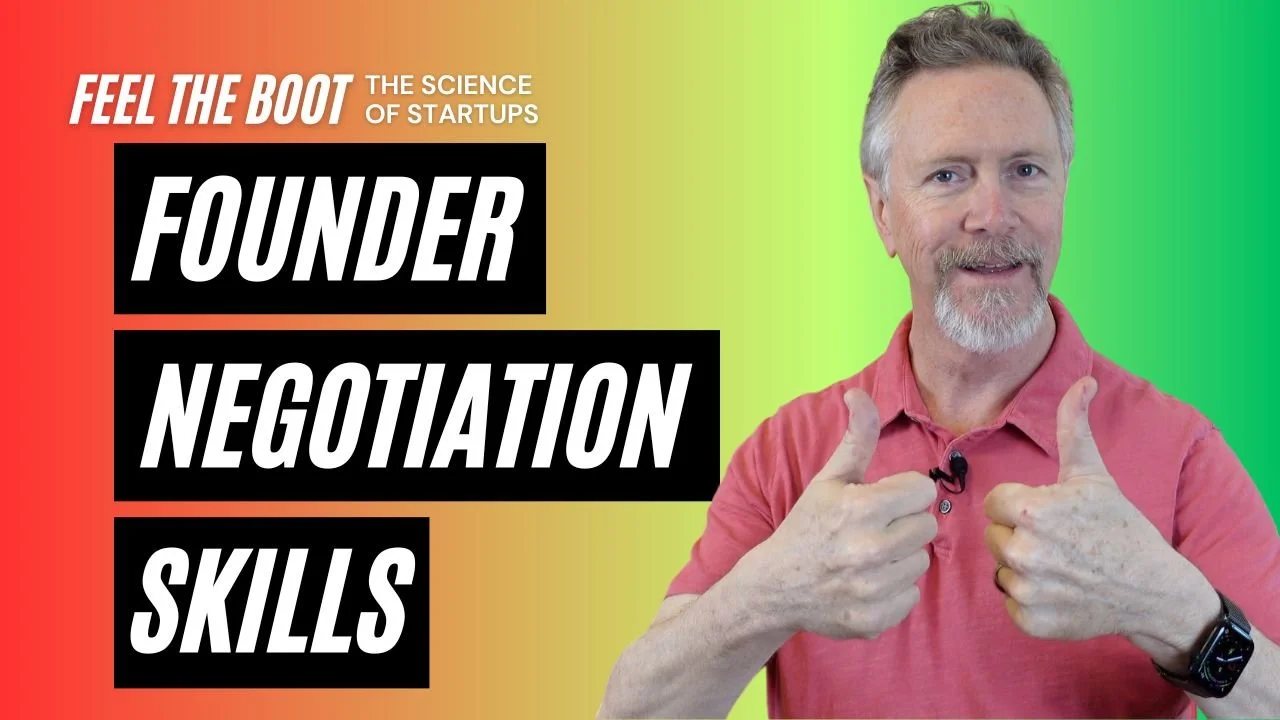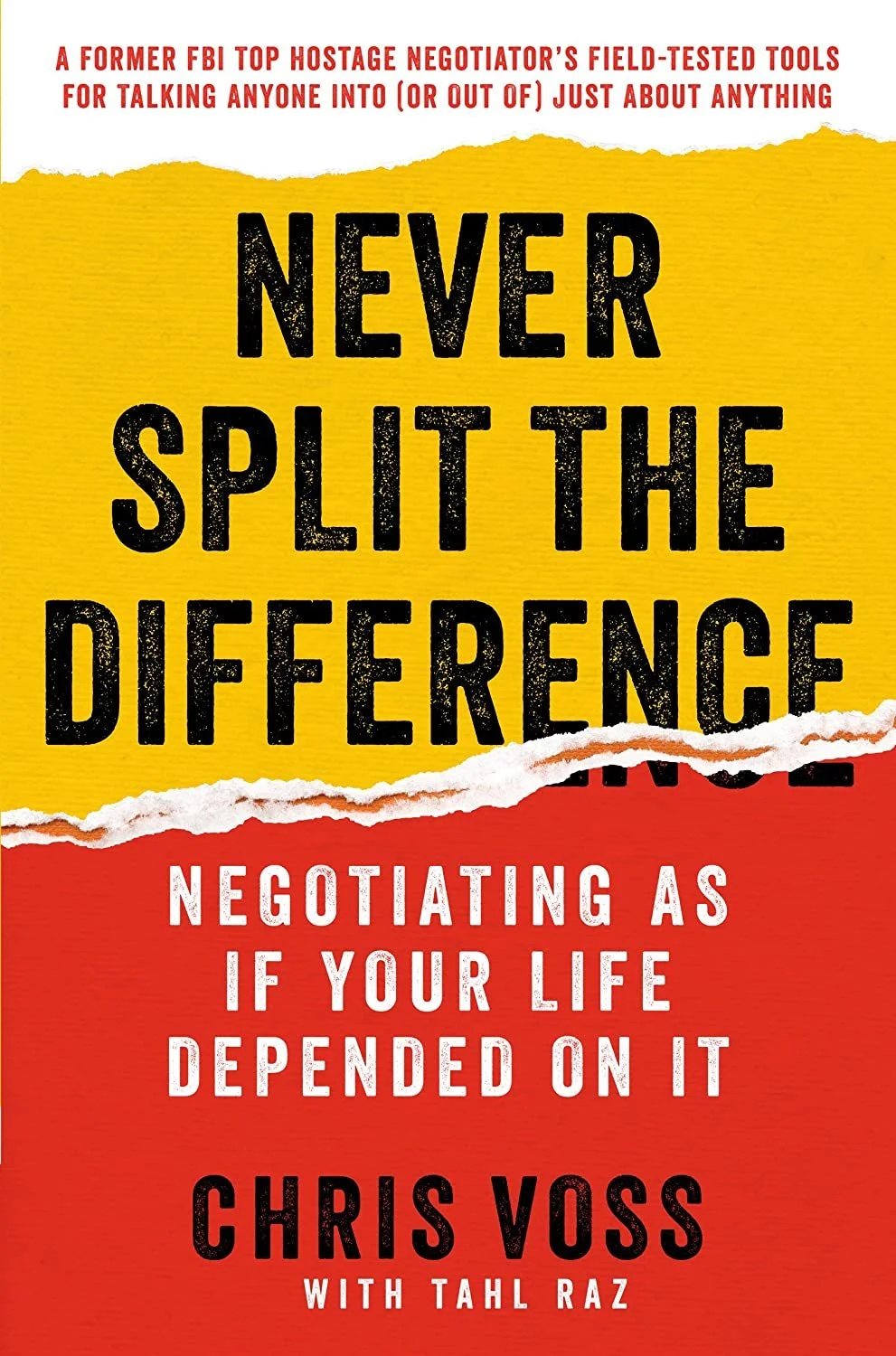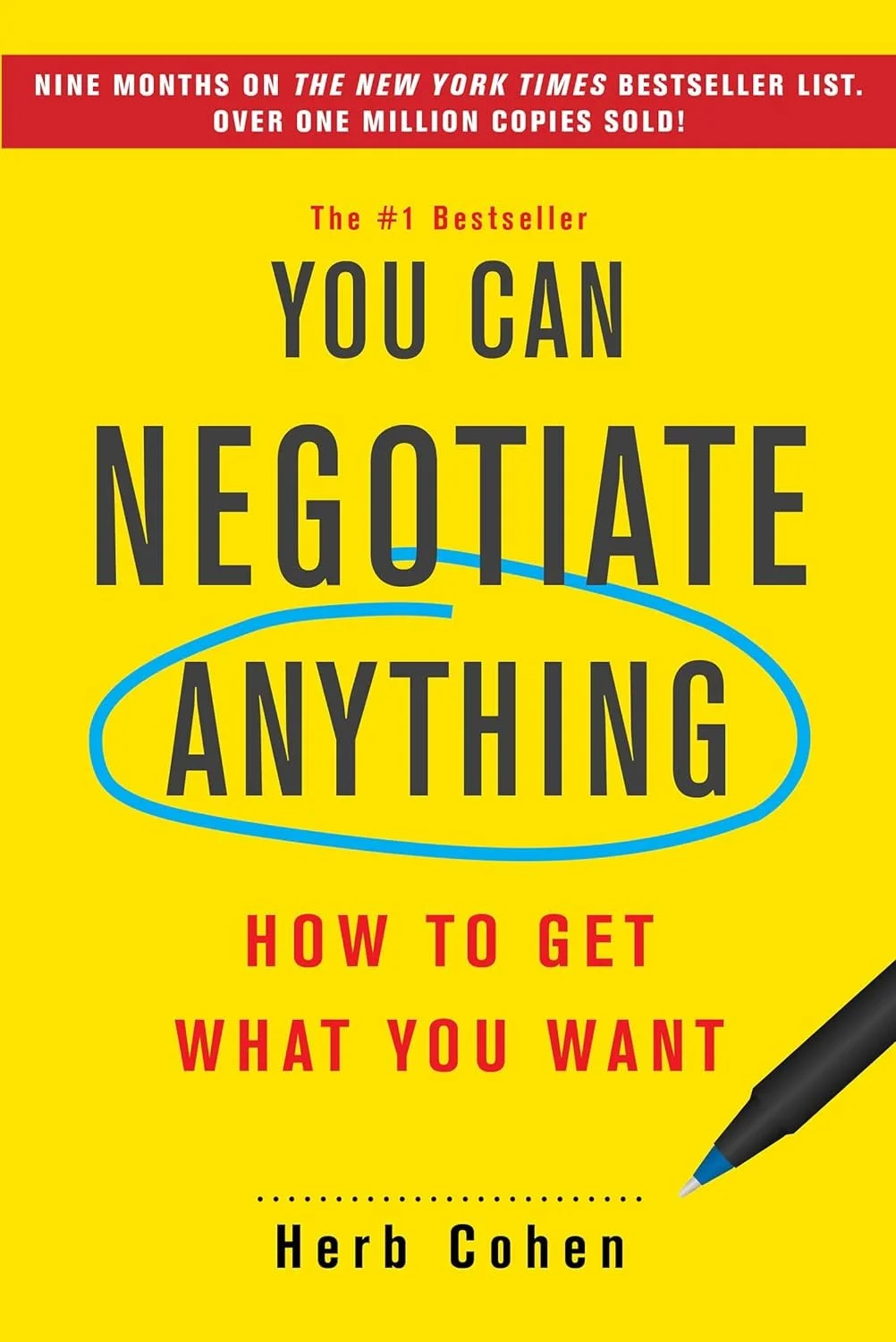104. Negotiation skills 🤝 for startup founders
Video of Negotiation Skills episode.
Negotiation is one of the core roles of CEOs. As a founder, you will negotiate with investors, co-founders, employees, vendors, and customers.
At first, most founders are not expert negotiators. I certainly wasn't.
Many of us are conflict-averse and worry about damaging our relationship with the other person in the negotiation. This can be particularly tricky when the talks are highly charged and high-stakes.
This article covers my favorite approaches and techniques to get a good deal that creates a win-win outcome in a six-step process.
This article is part of our series on running your business. You can find all the others in the series HERE.
1 – Know Yourself
Start by spending time thinking about your needs and priorities. The better you understand your negotiating position, the better outcome you can achieve.
What outcome do you hope for?
What are your top priorities?
Where are your hard lines and limits?
Where can you be flexible?
What doesn't matter much to you?
What is your "best alternative to a negotiated agreement" or BATNA?
Take a moment to write down your answers. In particular, think through your alternatives if you can't agree. Work out your best BATNA or plan B. Having that in front of you will ensure you don't take a deal that's worse than no deal at all.
The more ideas you can capture in phase one, the better prepared you will be when the negotiation starts. Getting creative in the moment can be challenging, so this pre-planning can have significant payoffs later.
2 – Understand Them
Before discussing any terms, options, or starting points, take time to understand where they are coming from.
This is a Socratic process. Explore their stance through a series of questions.
You need to understand the same things about them as you just considered for yourself.
In particular, you need to know their priorities, non-priorities, and hard lines.
The intersection of their wants and needs with yours lays out the space within which you can negotiate and indicates where there is flexibility to find mutually satisfying compromises.
3 – Gather Your Data
Gather the data you will need to support your arguments and counter theirs.
If you are negotiating the valuation of your startup with a potential investor, they will probably use some valuation methodologies to argue for their preferred number. You need to arm yourself with calculations supporting your position, or it will be difficult to push back. As they say, "Don't bring a knife to a gunfight."
4 – Make It About Them
Once you start negotiating, focus on the other party and their needs. Of course, you will always keep your needs and interests in mind, but they will better accept your ideas and suggestions when framed in terms of their desires.
For example, when negotiating your solution's price with a potential customer, talk about the value to them rather than how much it costs you to provide it.
When discussing employee compensation, organize your offer around their priorities, not just the top-line salary.
5 – Get Creative
Negotiations are an opportunity to use your creativity.
It's easy to find yourself at an impasse, immediately entrench your position, and start a shoving match.
Any time you find discussion going around in a circle with no progress, stop and re-think the entire situation.
The best solution when you hit a wall is not to try to bash through it but to look for a door or path around it.
That's where creativity comes in.
Even if the other party can't see a way out of the stalemate, you might, given your understanding of both positions.
Usually, your list of "nice to have" outcomes is your friend here. That is a list of things you both can trade away with minimum anguish.
If they resist giving up low-priority items, you can re-focus them on achieving their primary objectives.
You are not playing tug-of-rope. It's not a linear engagement. You have many dimensions along which you can shift.
6 – Go for a Win-Win Result
While you can negotiate to maximize the outcome in your favor absolutely, it's usually a bad idea.
We rarely engage in one-time negotiations with people we will not see again. In most cases, we will have many interactions and discussions.
Simon Sinek frequently talks about the difference between limited and infinite games.
Infinite games are endless series of interactions in an open and interconnected environment.
That's almost always the case in your negotiations.
Not only will you deal with that person again, they will share their experiences with others.
You might be able to beat down a vendor to a price where they lose money on the transaction, but they are unlikely to do a good job. They might slack off or even drop the project halfway through, leaving you in a difficult situation.
If you are a jerk to an investor (or an investor to a founder), that will get around, and people will avoid doing business with you.
You can't make everyone happy in every deal, but you should both be at least reasonably content with the outcome. In the best case, you should both think you got the better end of the deal because it addressed your top priorities while only sacrificing things of little importance.
Until next time, ciao!
An article like this can only cover the basics of negotiation. If you want to dive deeper, I can't recommend two books highly enough: Never Split the Difference and Negotiate Anything. They are both pure gold.
Because employee compensation discussions are one of the most common negotiations you will encounter, you might enjoy this episode on Non-monetary Startup Rewards and Recognitions.



